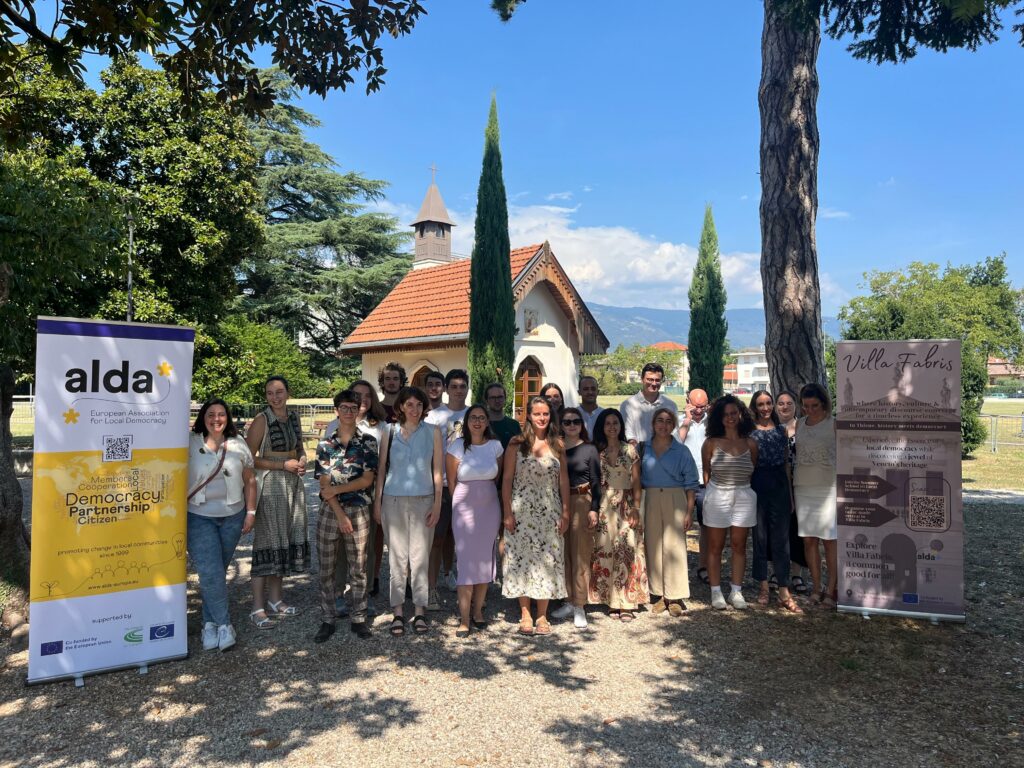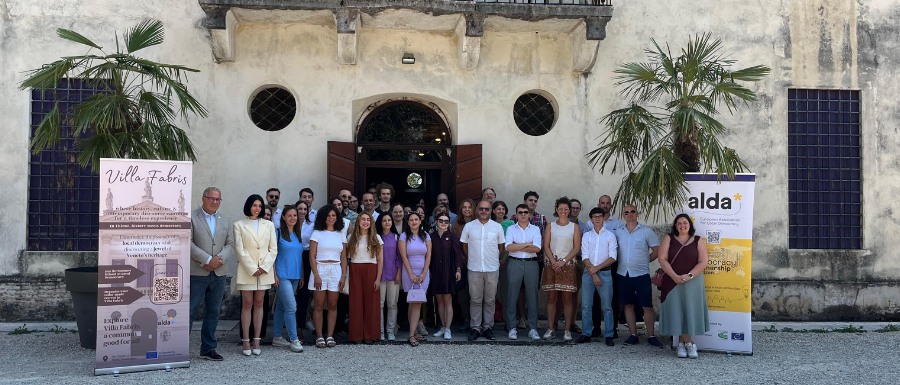The first edition of ALDA Summer School on Local Democracy has just come to its end, after three days of enriching and insightful lectures and discussions regarding the foundations, challenges, and future of local governance, with a special emphasis on Ukraine’s current situation.
This successful first edition took place from August 28th to 30th, in the charming frame of the historical Villa Fabris, in the Municipality of Thiene, in northern Italy.
This edition of such a Summer School, absolutely unprecedented in its kind, was a great success among the participants and experts who took part. The choice of alternating theoretical lectures with workshops and moments dedicated to discussion convinced the participants, who were very satisfied with the experience, which provided them with new knowledge and practical skills on local democracy and citizens participation.
Since the first day, ALDA Summer School was marked by a warm and familiar atmosphere which helped creating the sense of community among participants, making them feel comfortable and free to express their ideas and doubts on such a complex matter.
Indeed, the Summer School started at its full capacity, with some 30 participants from 12 countries across Europe, the Balkans, Africa and America.
Let’s go through the three days to review the highlights of our Summer School:
Day 1 centered on the “Foundations of Local Democracy,” featuring a welcome from key figures such as Marco Boaria, Director of Programmes and Corporate Strategy of ALDA, Scientific Coordinator of the School, Gianantonio Michelusi, Mayor of Thiene Municipality and Emir Coric, Vice President and Governing Board Member of ALDA and representative of Centar Municipality, North Macedonia. Following, participants enjoyed a keynote on the evolution of local democracy by Patrick Molinoz, President of the citizenship, governance, institutional and external affairs commission (CIVEX) of the European Committee of the Regions. Then,Helfried Carl, Innovation in Politics Institute and Founder of the European Capital of Democracy initiative, gave a speech on the role and consequences of innovation on local democracy and analysed the main current trends, followed by a participated plenary discussion involving all speakers and participants.
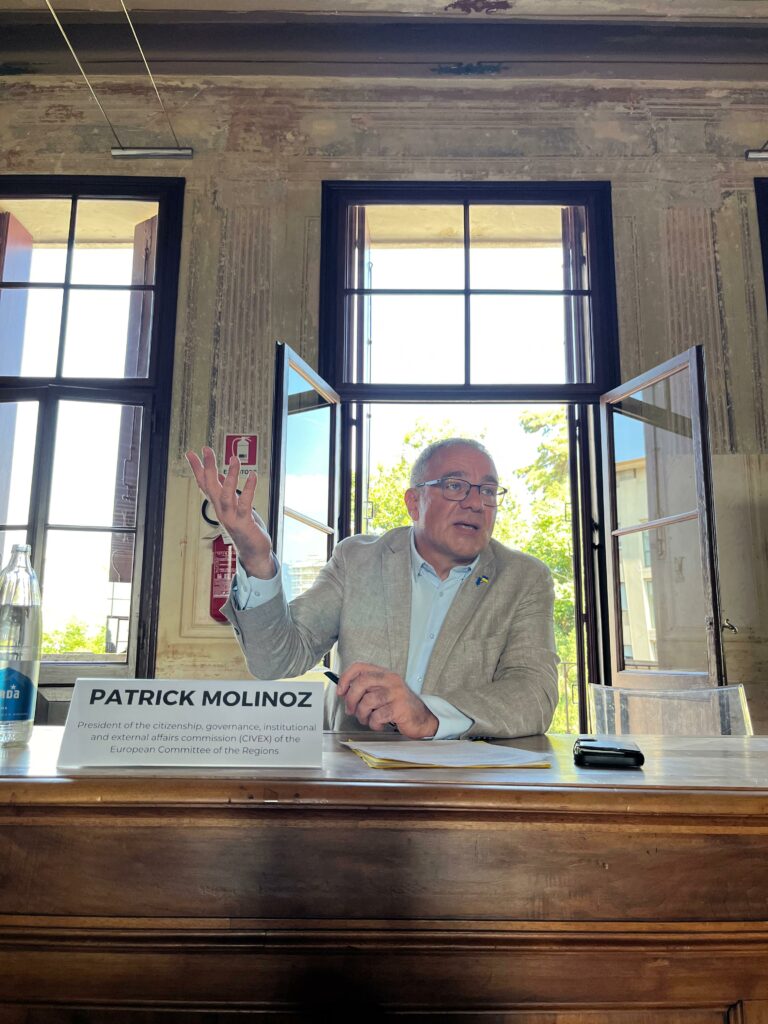
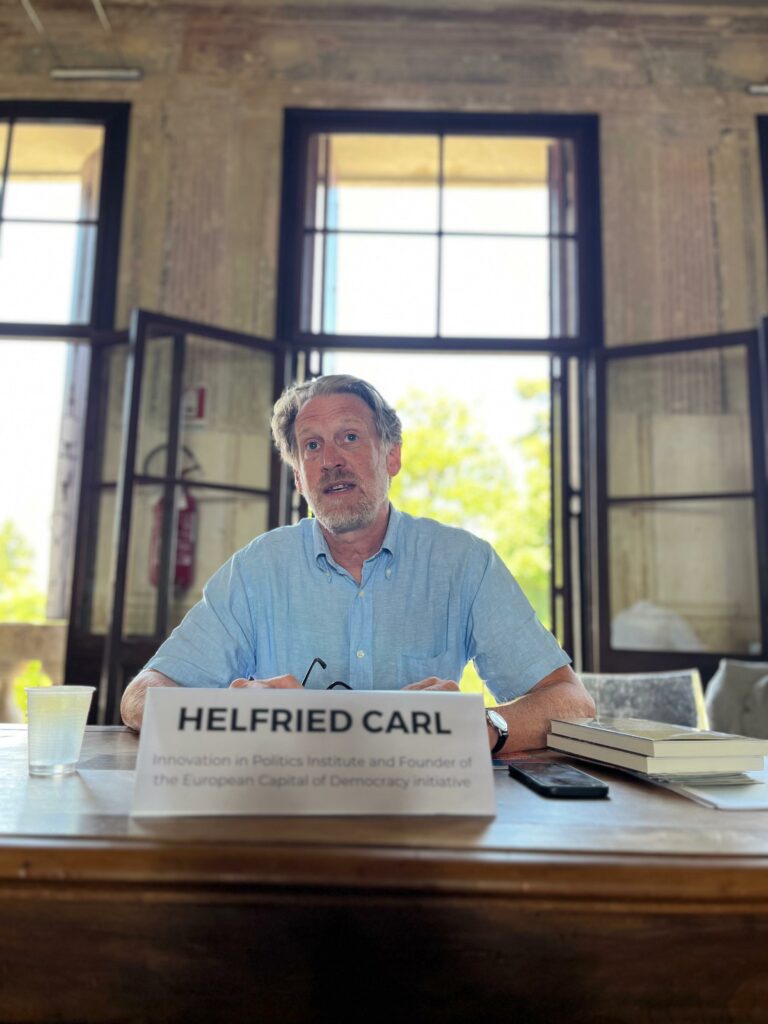
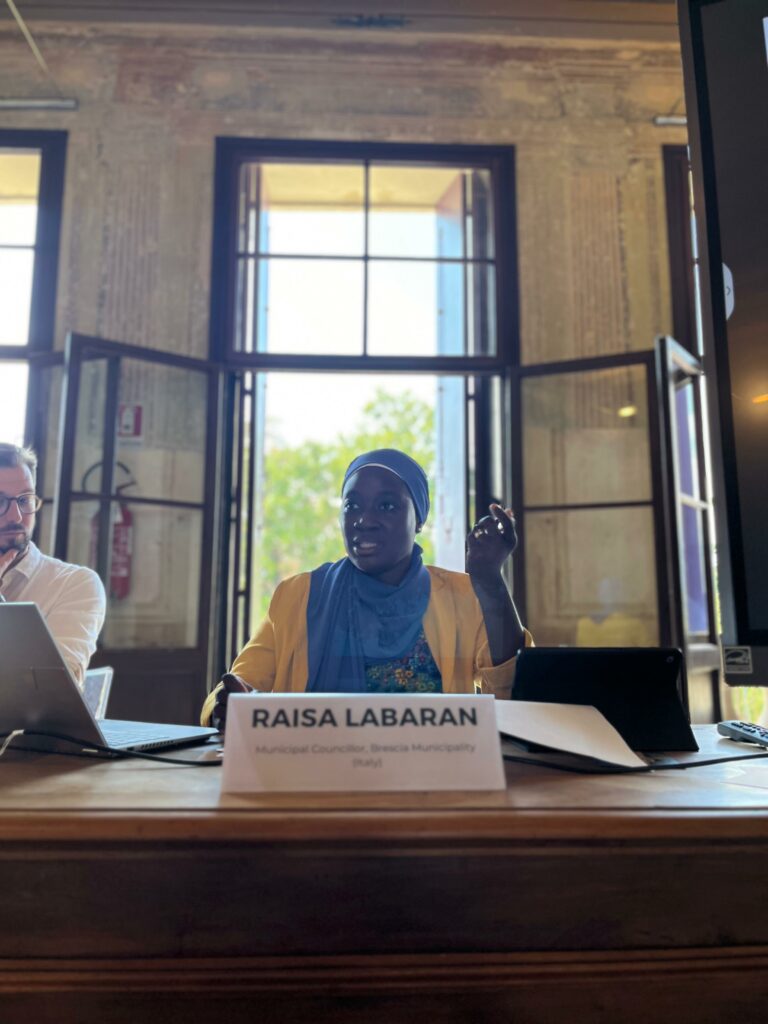
The afternoon’s main event was a panel discussion on local governance and social participation during which Michał Zorena, Director, Department of Local Cooperation and Social Innovation, Gdansk Municipality, Poland, and Raisa Labaran, Municipal Councillor, Brescia Municipality, Italy, brought their personal experience as municipal officers.
The day ended with a field visit to the Municipality of Thiene, where participants were welcome by the Mayor and some councillors, who presented the local community and described the main current projects ongoing.
Day 2 explored “Challenges and Innovations in Local Governance,” with a keynote on active citizenship by Francesca Gelli, Professor of Political Science at IUAV University of Venice (Italy) and a discussion on democratic resilience at European and local level again held by Patrick Molinoz. In the afternoon a workshop on democratic decision-making which delighted the participants, who all put themselves in the shoes of municipal officers and, according to various given scenarios, had to try to find the right tool to stimulate citizens participation.
Day 3 focused on “Ukraine at a Critical Path: looking into the future for sustainable and deep democracy” with keynote addresses on the critical situation Mariupol has been living since the Russian invasion started, from Olha Pikula, Councillor of Mariupol City Council (Ukraine), including Mariupol’s Mayor Vadym Bojčenko, who joined through a video-message. Then, Olha Oliinyk, Deputy Head of the Secretariat – Head of the Center for Сommunications, Еxternal relations and Fundraising of Vinnytsia Regional Association of Local Self-Government Bodies (Ukraine), who gave a speech on local governments and civil society groups from Ukraine. Discussions examined social cohesion, community resilience, and the challenges faced by civic spaces in fragile contexts.
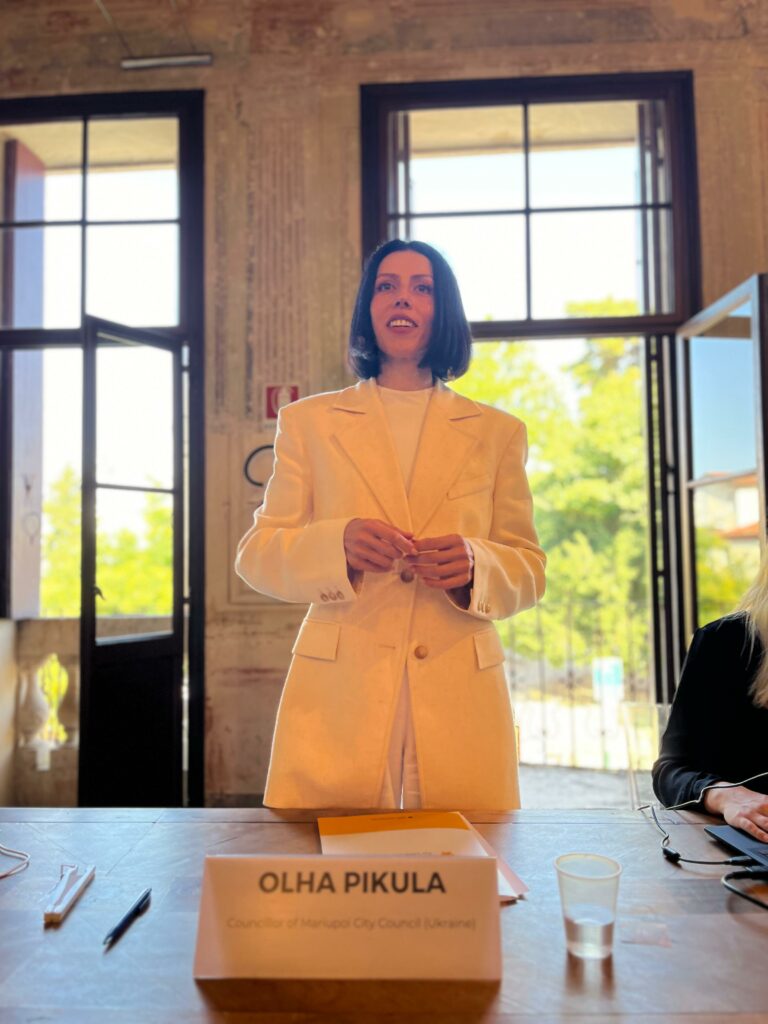
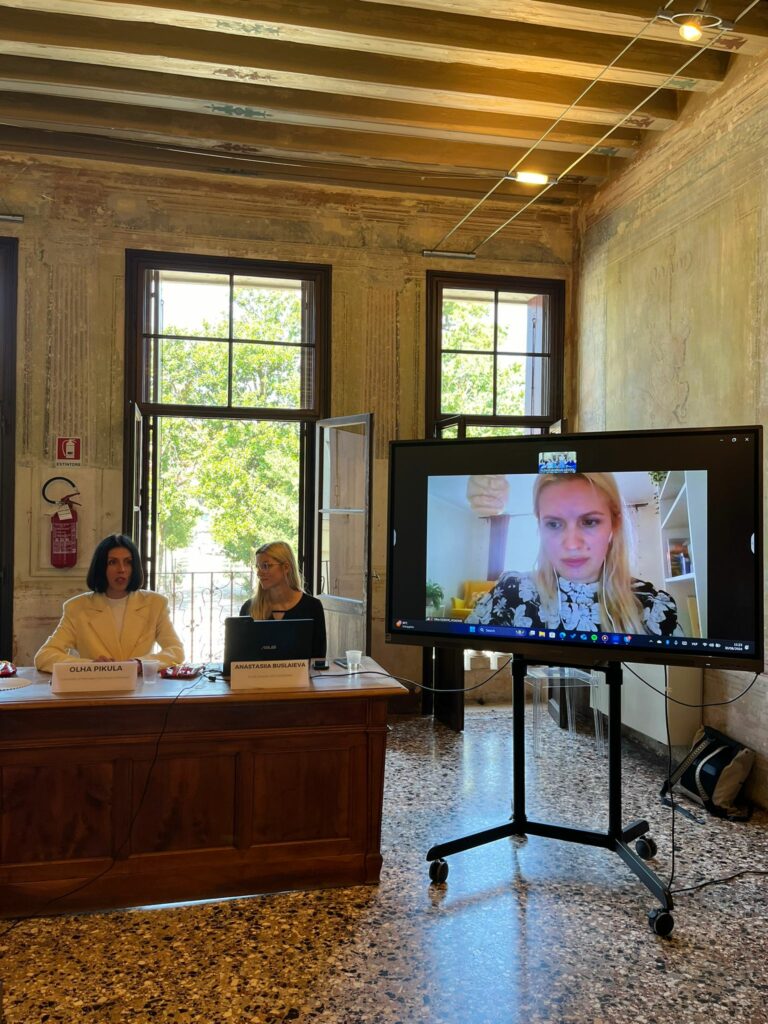
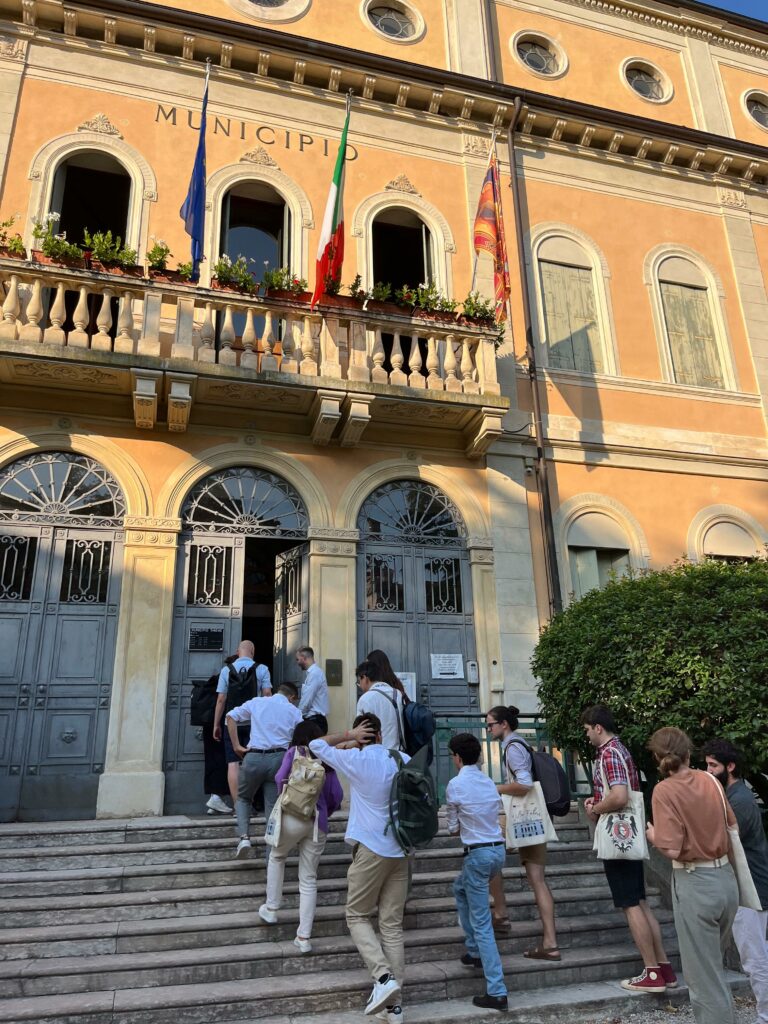
These interventions were followed by a participated debate, since the first-hand experiences presented by our experts aroused curiosity and questions on participants, especially on the peculiar case of Mariupol, a Municipality working from exile. The afternoon saw a panel discussion on “Civic space challenges in fragile contexts: strategies for inclusive governance”, moderated by Abdelaziz Bouslah, ALDA Tunis Office Director and Africa Regional Officer – Middle East and Africa Department.
The event concluded with reflections, assessments and a closing ceremony.
Thus, the Summer School provided valuable insights into the evolving landscape of local democracy and fostered connections among participants committed to advancing democratic governance in their communities.
All in all, an outstanding success promising for an even greater edition next year: indeed our wish and commitment is to make the Summer School on Local Democracy grow and become a regular appointment and reference point for all practitioners of good local governance all around Europe and beyond!
